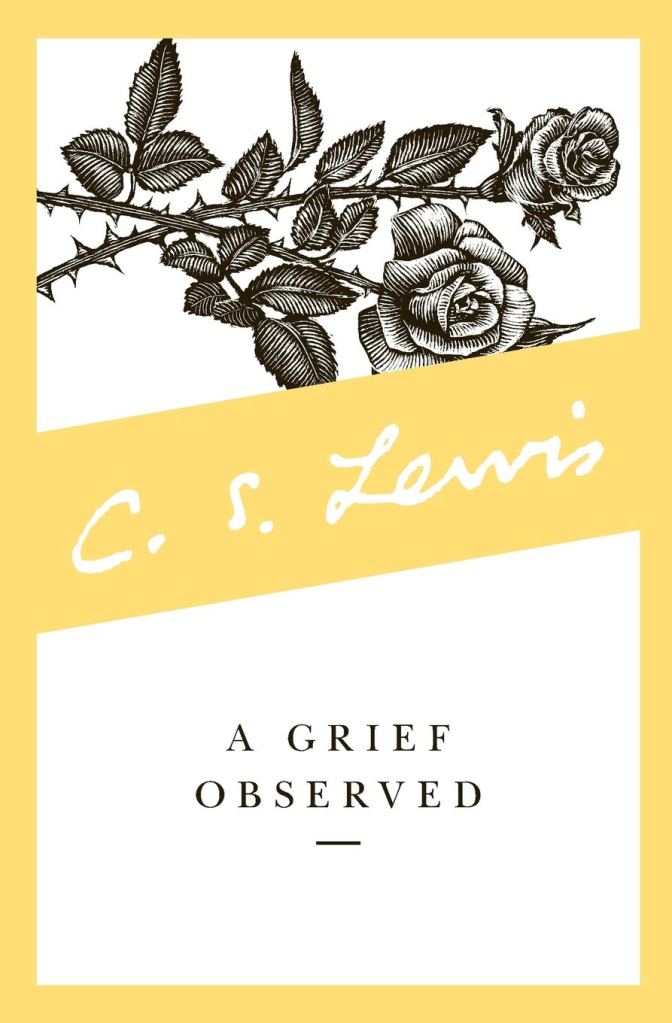
C. S. Lewis married his one and only wife, Joy Gresham, when he was 57 years old. Shortly afterwards, Joy was diagnosed with cancer—just four years later, she passed away. A Grief Observed is a collection of Lewis’s notes from the time of his mourning.
As another reviewer mentioned on Goodreads, you don’t pick up this book for fun but out of some personal need. Both death and loss arrived in my life suddenly this past spring, and I knew I should pick it up this year. I read it through last night and came away feeling… well, not comforted exactly but at least understood, in part.
The synopsis leads with the words “Written with love, humility, and faith…”—and while that is there, I would say a large part of A Grief Observed carries with it feelings of anger, even a kind of bitterness against God that made me wince. This is a collection of diary entries, not an essay. Lewis admits some of it is “a yell rather than a thought.”
He does get into theology, and some of his ideas challenged me. For example, he comes from a perspective that God plays an active part in causing or permitting our suffering—“in the only life we know He hurts us beyond our worst fears and beyond all we can imagine” (ch 2). Lately, I’ve been taking a different view of things, one where free will plays a greater role. Lewis finds some resolution in viewing suffering as part of a divine surgery, where pain is caused or allowed for some greater good. I see it as, at times, either an allowance of free will or a series of tests, although sometimes the pain is so great I fear failing…
On this point, I found my ideas expressed in chapter two, where he writes:
Only a real risk tests the reality of a belief. Apparently the faith—I thought it faith—which enables me to pray for the other dead has seemed strong only because I have never really cared, not desperately, whether they existed or not. Yet I thought I did.
“Faith without works is dead” (James 2:26)—words and beliefs have little weight until put to the test. “And you will never discover how serious it was until the stakes are raised horribly high…” (ch 3)
Lewis examines two other aspects of loss that are worth considering. One is that to dwell on the person lost is to risk warping your perception of them with memories and sentiment. The other is that to thrash about in grief can actually prevent or delay your healing. He likens it to “the drowning man who can’t be helped because he clutches and grabs.” This metaphor is poster-worthy… it’s something that is easy to forget when you’re blinded by whatever horrible things you are going through.
While I didn’t love A Grief Observed, I think it is worth reading. It’s not a self-help book, just a very personal reflection.




Leave a comment